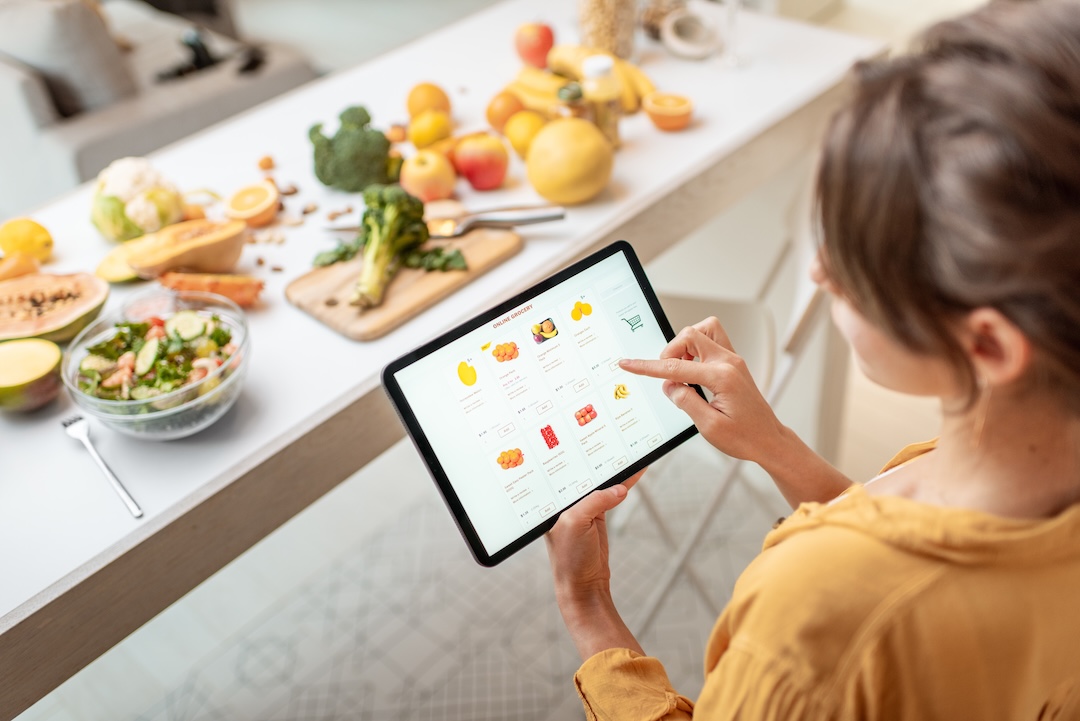Most founder journeys don't include being paid to snowboard and film extreme sports, running a restaurant-hotel, and developing breakthrough horticulture products from food waste. But Natalie Smith isn't most founders.
From her base in the Scottish Highlands, this single-parent founder is building two interconnected ventures—Seed2Plate and Shop2Plate—that tackle food sustainability, education, and waste reduction. Her story shows how diverse life experience, technical confidence, and the right ecosystem support can turn real-world frustrations into innovative solutions.
The Unconventional Path to Food Tech
Natalie's route to founding started in film and television. "I worked for a girls' adventure sports magazine, was paid to go snowboarding, and filmed extreme sports for years," she recalls. The pivot came when she and her parents bought a pub and transformed it into a restaurant-hotel, sparking what would become a 21-year career spanning hospitality, horticulture, and education.
She ran businesses successfully, then expanded into consultancy—developing education materials and recipes. She bought and ran holiday lets before that market became saturated, then strategically exited and invested in other businesses.
"I've always been self-employed. I've never actually been employed by anyone," she notes. This entrepreneurial foundation would prove crucial when she identified problems that existing solutions weren't addressing.
The School Food Waste Crisis
The catalyst for both ventures came from covering gaps at Charleston Academy for three years. "I'm a trainer, not a teacher; my background is work-based. Kids love practical, real-world stuff," she explains. Her tech-oriented approach resonated with students—she taught them about safe early use of AI, showing them how to generate weekly menus.
But beyond the classroom success, she witnessed something troubling: "In schools I see astronomical waste—there's no system." The scale of food waste in educational settings, combined with struggling school budgets and climate challenges, revealed a complex problem in need of a solution.
Seed2Plate: Growing Innovation from Food Waste
Seed2Plate was created to focus on innovative horticulture products created from food waste. One prototype supports sustainable growth and cuts out microplastics—addressing environmental concerns while solving practical growing challenges.
The results from summer testing were extraordinary. Traditional hanging baskets use gels containing microplastics and require heavy watering. Natalie's food waste-based product changed that dramatically: "In the first 4–6 weeks we reduced watering by approximately 70% and the baskets still bloomed. I left for 11 days; they were thriving."
In one compelling test, a butternut squash covered in mildew recovered within 36 hours of applying the product at its roots, with no sign of disease remaining.
These results earned her a £2800 grant to build a mini lab. Perhaps more meaningful is the full-circle impact: she developed the product after witnessing school food waste, and now she can run projects in schools like Charleston Academy to show students they've contributed to the solution.
Building Shop2Plate: 24 Hours from Problem to Prototype
After establishing Seed2Plate, Natalie realised she needed better tools to track and measure the food waste problem she was trying to solve. The breakthrough came from an automation workshop with Jeff Todd through Techscaler. "I went home thinking about my own food problems and built a prototype in 24 hours. I showed Jeff; he was impressed."
That rapid prototype evolved into Shop2Plate, a suite of AI-powered tools:
- A food waste tracker for families and institutions
- Shopping analysis that photographs receipts and analyses perishables versus processed items
- An ingredient maximiser showing what users can make with what they have
Natalie secured a Kickstart Grant from Highlands & Islands Enterprise (£8,274) to help build the web app for Shop2Plate. "The intention: when Seed2Plate goes into schools, it can give access to the food-waste tracker and tools for a month—see if it helps," Natalie explains. The two companies work in tandem, with Shop2Plate handling the tech and data that can also power Seed2Plate’s initiatives.
What's remarkable is the immediate traction. "We built one with revenue from day one," says Natalie. The app spread through word of mouth—parent to parent, restaurant owner to cafe owner. "My mum used it in her restaurant for the ingredient maximiser; she told a cafe owner who used it; then her daughter used it."
The Single-Parent Founder Reality
Natalie's journey comes with unique challenges. Based in the Highlands and juggling single parenthood, she faces barriers many founders don't encounter. "Being in the Highlands means restricted access. If an event isn't local I can't go unless it's online. I wouldn't recommend single-parent founding—it's a lot."
Her solution? Building relationships within an ecosystem that understands these constraints. "Techscaler keeps me more 'in' than 'out.' If I can't go physically, I'll miss something, but Norette/Mark find alternatives."
The isolation of solo founding influenced her hiring strategy. "As a solo founder, it's nice to have 'colleagues.' I work from home." She's actively hired from within the Techscaler community, bringing on a non-executive assistant and maintaining ongoing collaborations. "I've hired a few people from Techscaler."
Learning and Recognition
User feedback has shaped Shop2Plate's evolution. When users complained about processing speed, Natalie made strategic choices, selecting GPT-4.0 Mini because it reasons better for their use cases. "We compromised after a long journey and benchmarking." She also built it as a web app rather than a downloadable app: "I found people are tired of downloading apps."
Her work hasn't gone unnoticed. She's a finalist for the UKSB Female Entrepreneur of the Year awards, competing against founders from across the UK.
Looking forward, Natalie plans to either form a holding company linking both ventures or amalgamate them. She jokes about dominating the "2 plate" industry: "There will be a '2 plate' holding company one day."
Currently, Seed2Plate has a product in development under NDA. Within the year, she expects to make key hires—technical roles and an assistant. "I can't pay myself yet, so I still do consultancy," she admits. "But there's employment coming into my ventures."
The Techscaler Difference
Through Techscaler's Startup Basics programme, Natalie found community and confidence. "It kick-started my confidence in the startup world. I loved the watch parties; my notebook was full."
The workshop with Jeff Todd directly led to Shop2Plate's creation. The community connections led to hiring relationships. When physical attendance isn't possible, the Techscaler team finds alternatives. Perhaps most valuably, Techscaler represented possibility—that a founder working from the Highlands, juggling parenting and consultancy work, could still build innovative ventures and access the resources needed to scale.
Growing Solutions from the Ground Up
From extreme sports to smart gardens, Natalie Smith's path illustrates how entrepreneurship doesn't require a traditional trajectory—it requires observation, adaptability, and the willingness to build solutions to problems others overlook.
As schools struggle with budgets and climate change makes growing food more unpredictable, Natalie's innovations offer practical pathways forward. "Schools are struggling, the climate's crazy, and I know a bit of AI," Natalie says with characteristic understatement. And as a Highlands-based founder proving that location doesn't limit impact, she's showing that the next generation of sustainability solutions can come from anywhere—if the right support exists.
One of the grants that helped support Natalie's journey is the Kickstart Grant, exclusively available for Techscaler members in the Highlands and Islands from Highlands and Islands Enterprise . Sign up for Techscaler today to check out the support available.



-52.jpg)








